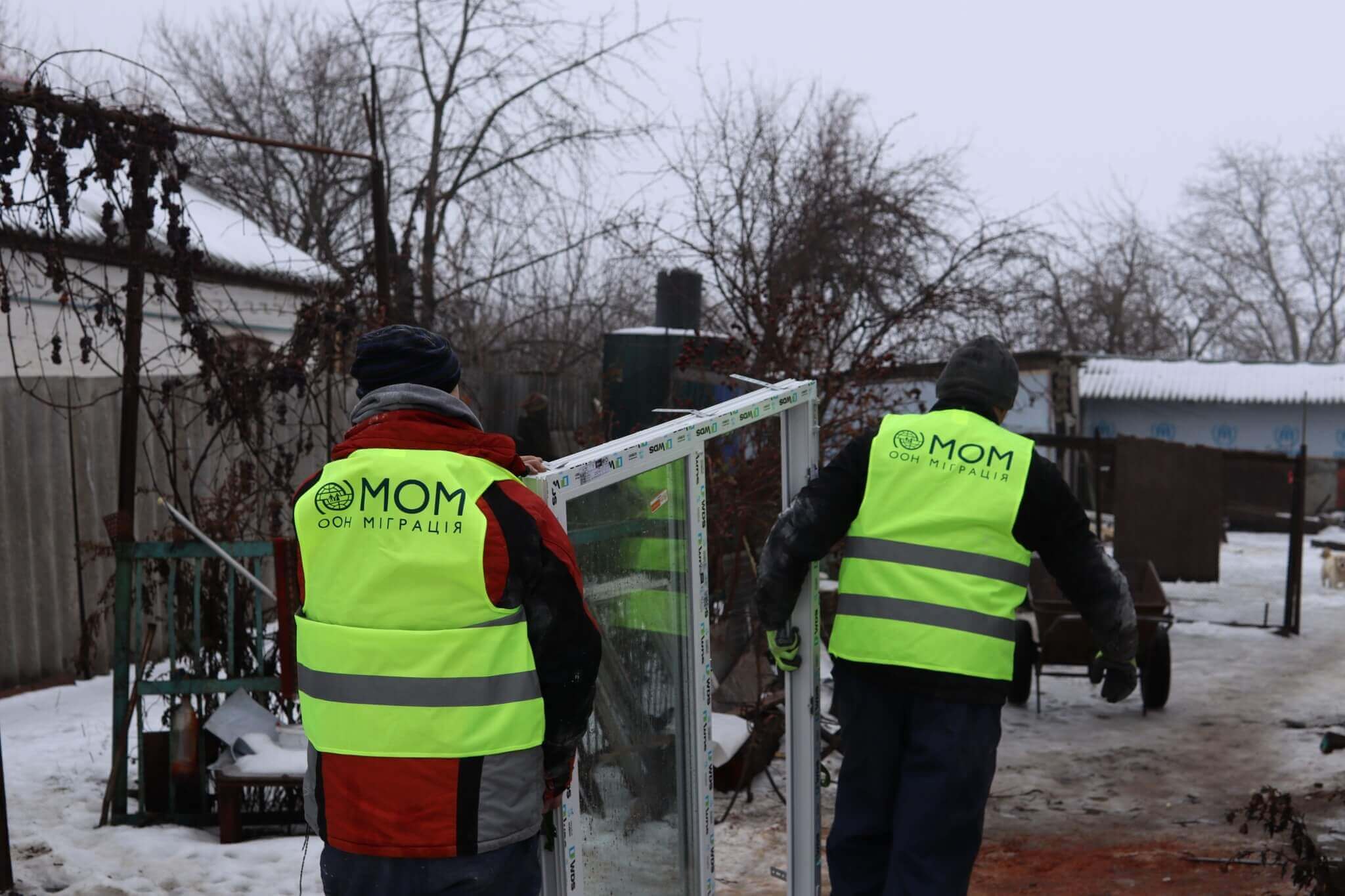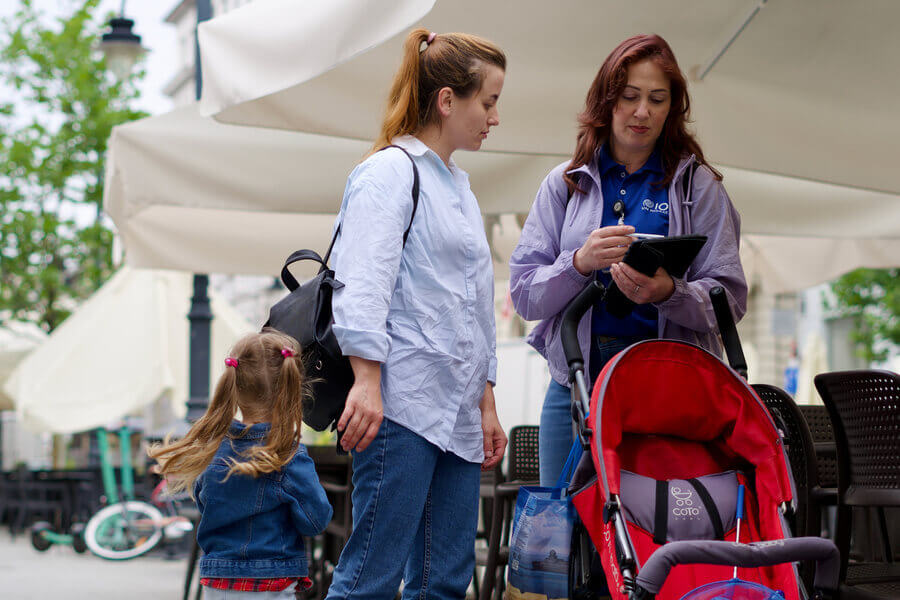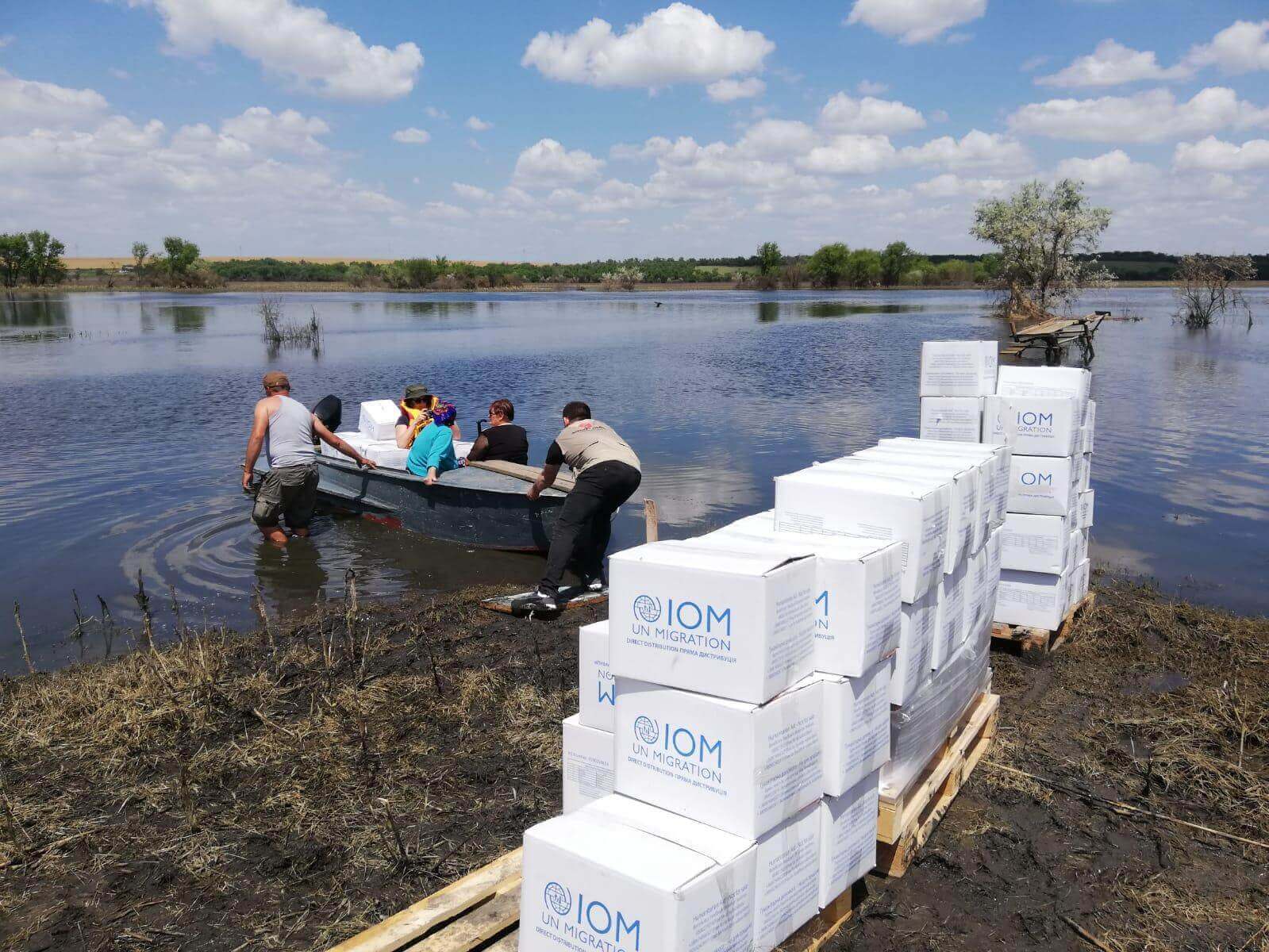Operational Presence
IOM has been operating in Ukraine since 1996 and has significant
experience in managing complex humanitarian
interventions, including in the Eastern Conflict Area of Ukraine since 2014. IOM has a
unique comparative advantage
throughout the areas affected by the war with a well-established operational footprint
inclusive of humanitarian,
recovery, development and peace programming. This enables IOM to support complementary
programming across the entire
spectrum of needs while strengthening integrated approaches to migration management, policy
and governance, and
sustainable development. In 2022, IOM further expanded its presence and operations, becoming
the largest humanitarian
and recovery actor operating in Ukraine with an expanding team of over 850 staff.
IOM had presence in all neighbouring countries prior to the full-scale invasion and quickly
scaled up its operations to
address urgent needs. Currently, IOM operates 11 head offices and seven sub-offices in
neighbouring countries, with
almost 1,100 staff and affiliates deployed (92% national) in strategic locations.

IOM staff supporting the restoration of buildings damaged by the hostilities, Ukraine. © IOM 2023
Localization For Sustainable and Inclusive Responses
February 2022 – December 2023

IOM, in collaboration with UNHCR, contributes to Multi-Sectoral Needs Assessment to capture information on
the situation, needs, vulnerabilities, and integration of refugees from Ukraine in Poland. © IOM 2023/Alexey Shivrin
Enabling Our Response
IOM implements broad data collection and analysis programmes in Ukraine and the region focused on the production of operational data and analysis, (ii)leadership on harmonization and uptake of data and analysis within the humanitarian and recovery coordination structures, and (iii) provision of technical expertise, systems and capacity building for evidence-based planning and policy making at the local, regional, and national level of governance, especially in identifying priority needs for recovery in Ukraine and inclusion in countries hosting displaced Ukrainians and migrants.
Click here to access all data products for the Ukraine responseThroughout the prolonged war, IOM will continue to tailor its humanitarian interventions, looking at the most heavily impacted communities and individuals combined with lower levels of resilience factors, thus more exposed to various protection risks.
Centring the programming model on specific locations–regions, municipalities, communities, service points–enables IOM to combine humanitarian services with development and peace approaches while placing protection at the core of all interventions to provide holistic support. The region’s parameters are shaped by national governments that define policy while much of the implementation and service delivery is managed at sub-national levels.
IOM works with local authorities to develop their own integration and inclusion strategies and models, while supporting stakeholder engagement. Throughout the region, this has included support for national programmes for decentralized migrant integration centres, municipality-specific models and policies, and a robust engagement with civil society organizations(CSOs) and private sector–often the most influential and capable partners at the local level.

IOM partners bringing aid items to rural areas in Kherson region. © Rescue Now 2023
Cross-Cutting Priorities
The IOM AAP Framework outlines a comprehensive strategy for embedding Accountability to Affected Populations (AAP) into crisis and recovery efforts. It emphasizes leadership, transparent information sharing, meaningful participation pathways,Complaints and Feedback Mechanisms (CFM), and partner coordination. This ensures high-quality, responsive programming aligned with beneficiary needs while upholding zero-tolerance policies against misconduct. IOM intensifies focus on the Preventing Sexual Exploitation and Abuse (PSEA) strategy in Ukraine, emphasizing local partner training and front line PSEA focal points. Collaboration for law enforcement training demonstrates commitment to practical solutions and community-driven innovation, facilitating effective responses globally.
IOM is committed to and accountable for placing the rights and well-being of all migrants, at the centre of our operations and decision making. IOM’s Institutional Approach to Protection supports a consistent, coherent, and accountable role for IOM on protection that ensures the protection of migrants across the full spectrum of humanitarian response, migration management and governance.
IOM is deeply committed to upholding every individual's dignity and rights throughout their migration journey, confronting disparities tied to gender, age, race, ethnicity, and disability. Our approach involves a proactive collaboration with affected communities and stakeholders to unpack and dismantle societal, institutional, and structural barriers perpetuating discrimination and inequality.
Caring for people and the planet is one of our core values, and we are committed to mainstreaming environmental sustainability in our projects and programmes, facility management and operations.Recognizing the heavy impact of the war one cosystems in Ukraine and neighbouring countries, the restoration imperative is intertwined with relief and recovery efforts, while mechanisms for communities to effectively respond and safeguard themselves from large scale accidents need to be in place.
IOM is committed to ensuring that conflict sensitivity isa core principle running across all programming and systems. Conflict sensitivity is the ability to understand the context of operations, anticipate the interaction between its activities and that context, and act on that understanding to maximize positive and minimize negative effects of its intervention on affected populations. A solid analysis of conflict and peace dynamics is the foundation of conflict-sensitive action.
People affected by the war in Ukraine are the best placed to understand and determine their needs and those of their community. By placing people and communities at the centre of its operations, IOM remains accountable to them, adapting programmes and approaches based on feedback from affected populations, implementing partners and stakeholders.